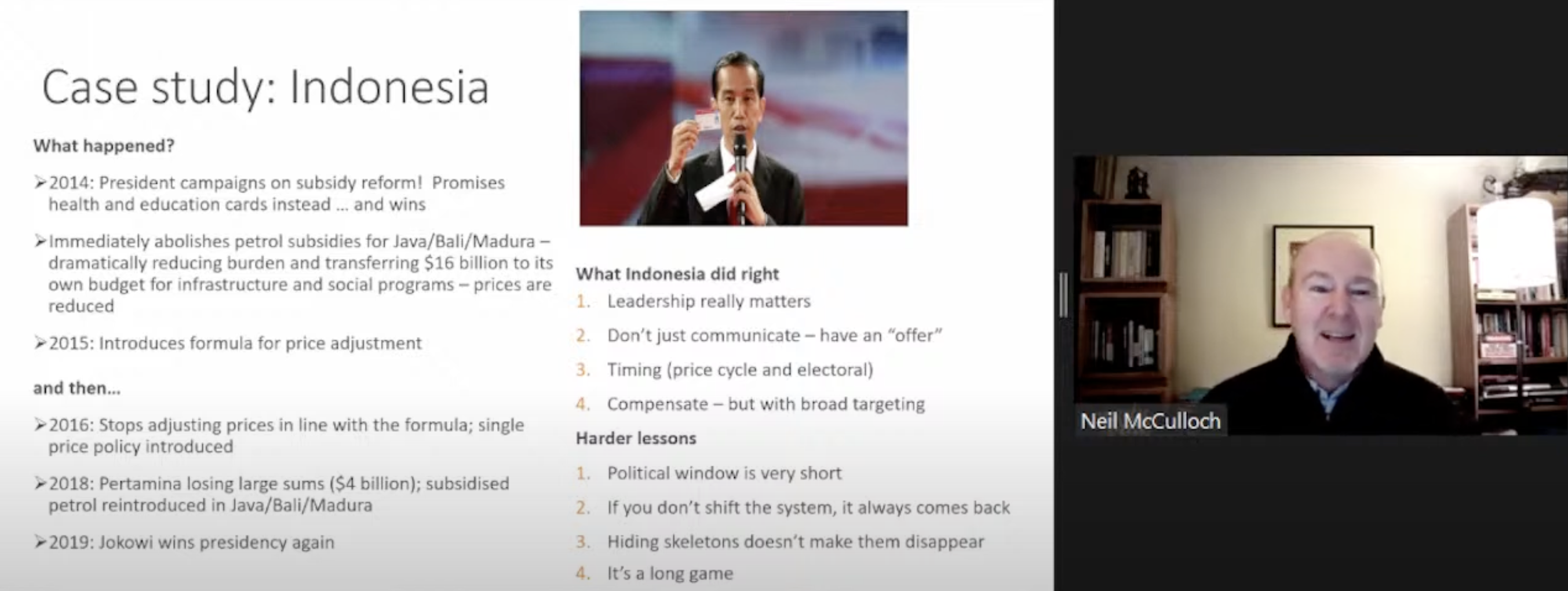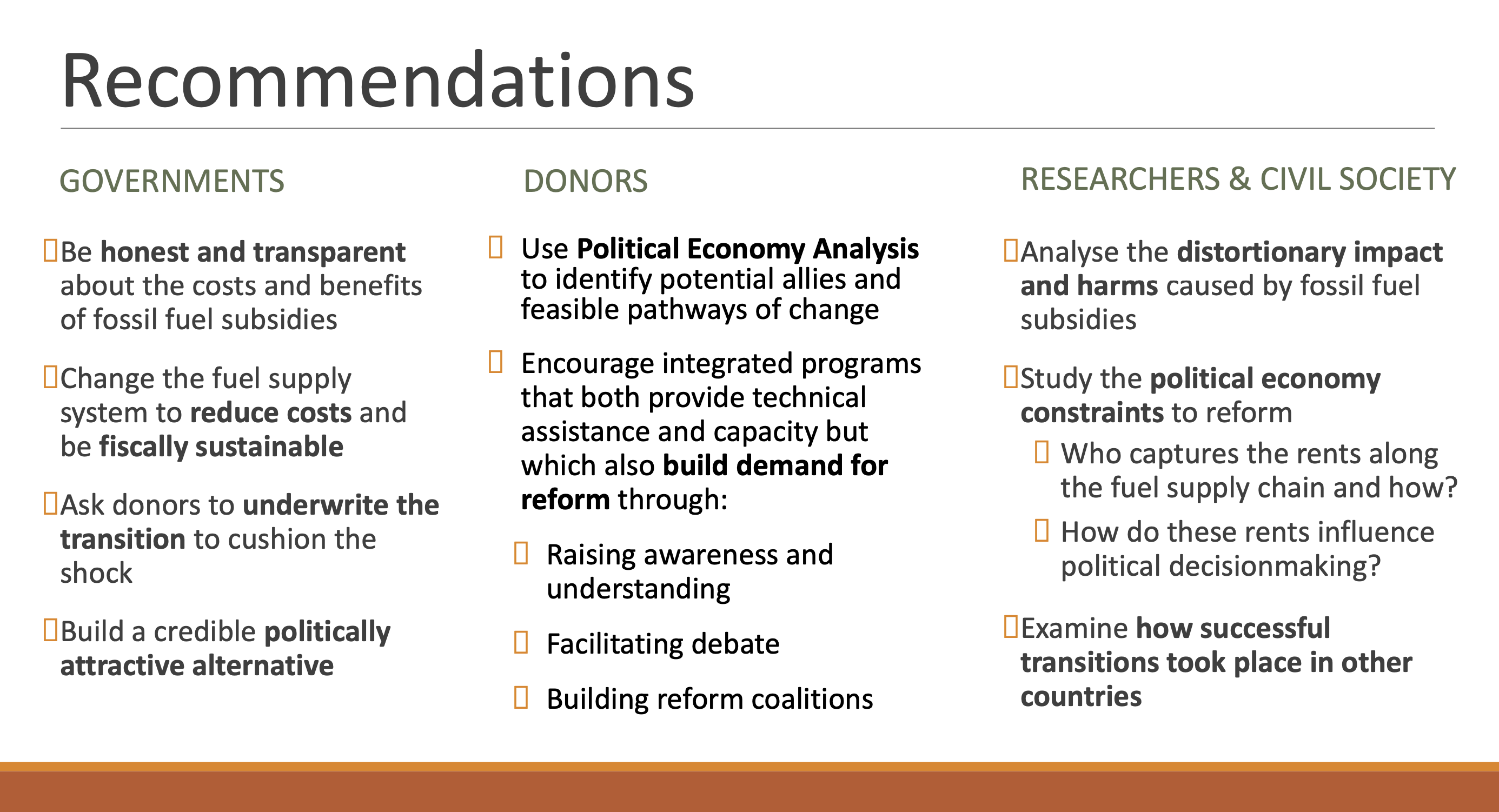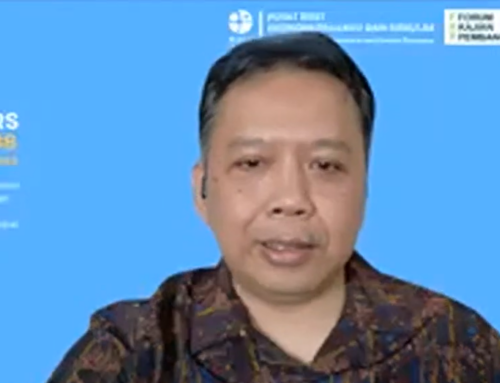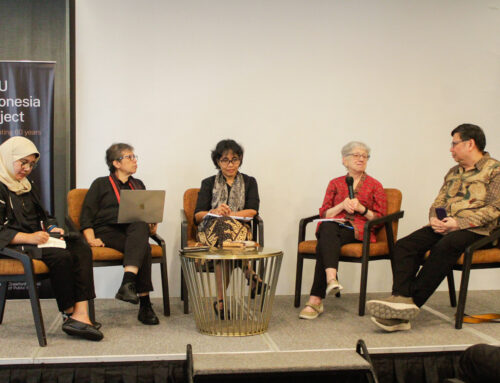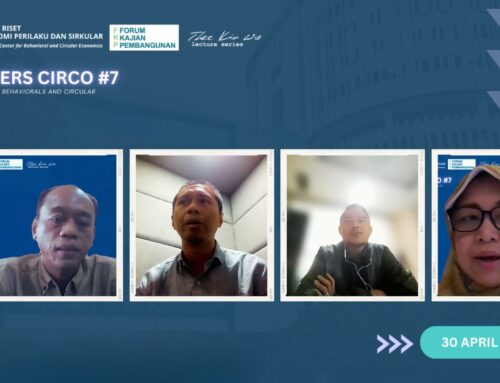FKP hosted by ANU Indonesia Project with Neil McCulloch (Director of The Policy Practice, UK). Wednesday, 5 April 2023.
KEY POINTS:
- Fossil fuel subsidies are causing harm to people and the environment, promoting excessive consumption of fossil fuels, exacerbating pollution and climate change, and wasting large sums of money that could be better utilized. However, efforts to eliminate these subsidies have been ineffective due to political opposition, among other factors.
- Despite the harm caused by these subsidies, eliminating them is challenging due to factors such as inflation, political opposition, and public distrust. In his new book entitled Ending fossil fuel subsidies: the politics of saving the planet, Neil McCulloch proposes a new agenda for addressing fossil fuel subsidies, emphasizing the importance of a persuasive reform narrative and collaboration between politicians and citizens to redirect resources towards reducing poverty and improving social welfare.
SUMMARY
- Fossil fuel subsidies are causing significant harm to both people and the environment. These subsidies promote excessive consumption of fossil fuels, exacerbate pollution and climate change, and increase the likelihood of violent protests. Additionally, they waste large sums of money that could be better utilized. Despite this, there has been minimal progress in eliminating these subsidies.
- In this webinar, Neil McCulloch presented an overview of his newly published book entitled Ending fossil fuel subsidies: the politics of saving the planet which explains why fossil fuel subsidies persist and why current efforts to eliminate them have been ineffective. He outlined five factors, including the fact that the removal of subsidies often hurt people because reforms to energy subsidies often result in price increases for fuel and electricity, which can be substantial. This not only increases the cost of energy, but also leads to inflation that affects other goods. Furthermore, the reform is frequently opposed by those who benefit from the current system, including wealthy and politically connected groups who often fund political parties. Other factors of the challenge of fuel reform are outlined in the book.
- McCulloch also draws lessons from countries that have attempted to remove fossil fuel subsidies, emphasizing that the fundamental challenge to reform is political rather than technical. For example, in Indonesia, President Jokowi campaigned for subsidy reform in 2014 and subsequently abolished gasoline subsidies for Java Bali Madura, but later Pertamina suffered losses of $4 billion, leading to the reintroduction of subsidized gasoline in 2018. The book also examines the case of fossil fuel reform in Lebanon, where the government has failed to address subsidies in a structured, transparent, and equitable manner.
- The book proposes a new agenda for addressing fossil fuel subsidies. It demonstrates how a deeper understanding of the underlying political incentives can lead to more effective approaches for tackling this global problem. McCulloch also highlights the significance of a persuasive reform narrative and the need to create public demand for reform, not just supply. The book shows that politicians and citizens must collaborate to promote reform and redirect resources towards reducing poverty and improving social welfare.
The book is open access and can be downloaded from this link: https://practicalactionpublishing.com/book/2642/ending-fossil-fuel-subsidies

